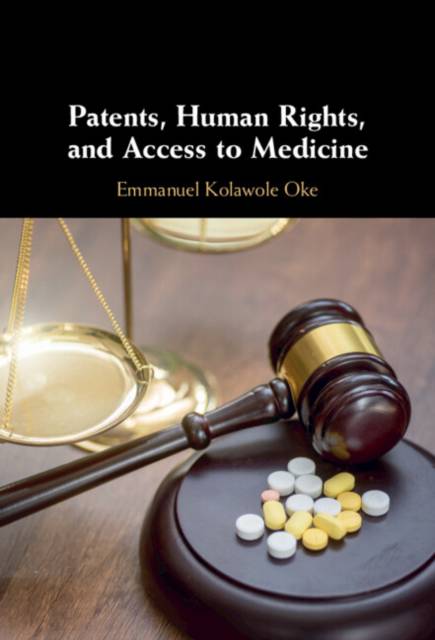
- Afhalen na 1 uur in een winkel met voorraad
- Gratis thuislevering in België vanaf € 30
- Ruim aanbod met 7 miljoen producten
- Afhalen na 1 uur in een winkel met voorraad
- Gratis thuislevering in België vanaf € 30
- Ruim aanbod met 7 miljoen producten
Zoeken
€ 213,45
+ 426 punten
Omschrijving
Patent rights on pharmaceutical products are one of the factors responsible for the lack of access to affordable medicines in developing countries. In this work, Emmanuel Kolawole Oke provides a systematic analysis of the tension between patent rights and human rights law, contending that, in order to preserve their patent policy space and secure access to affordable medicines for their citizens, developing countries should incorporate a model of human rights into the design, implementation, interpretation, and enforcement of their national patent laws. Through a comprehensive analysis of court decisions from three key developing countries (India, Kenya, and South Africa), Oke assesses the effectiveness of national courts in resolving conflicts between patent rights and the right to health, and demonstrates how a model of human rights can be incorporated into the adjudication of patent rights.
Specificaties
Betrokkenen
- Auteur(s):
- Uitgeverij:
Inhoud
- Aantal bladzijden:
- 184
- Taal:
- Engels
Eigenschappen
- Productcode (EAN):
- 9781108472104
- Verschijningsdatum:
- 3/03/2022
- Uitvoering:
- Hardcover
- Formaat:
- Genaaid
- Afmetingen:
- 152 mm x 229 mm
- Gewicht:
- 417 g

Alleen bij Standaard Boekhandel
+ 426 punten op je klantenkaart van Standaard Boekhandel
Beoordelingen
We publiceren alleen reviews die voldoen aan de voorwaarden voor reviews. Bekijk onze voorwaarden voor reviews.








